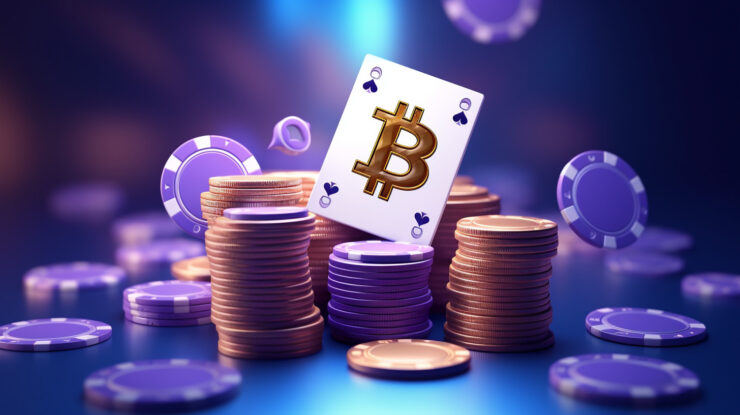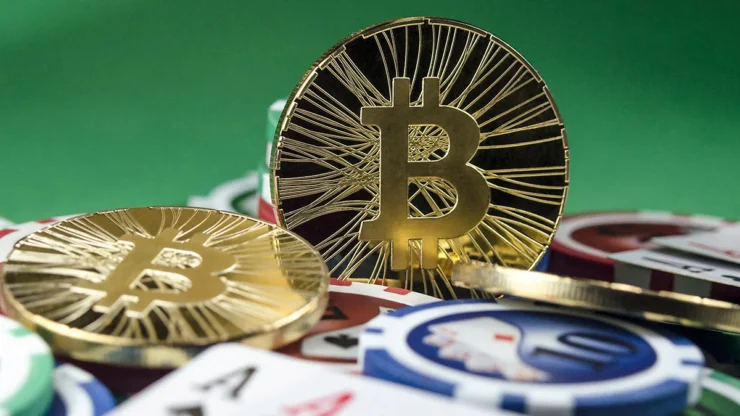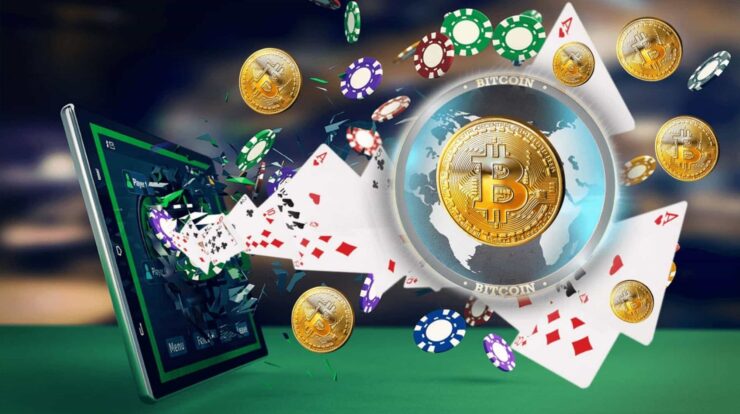In the palm of your hand lies a universe of entertainment. A world where you can slay dragons, build empires, and even become a global sports star. This is the world of mobile gaming, a sector that has seen explosive growth in recent years. With over 2.7 billion gamers worldwide, mobile games have become a cultural phenomenon, transcending age, gender, and geography. But as we look to the horizon, a new player is entering the arena, promising to revolutionize the industry: cryptocurrency.
Cryptocurrency, a form of digital or virtual currency that uses cryptography for security, has been making waves across various sectors, and the gaming industry is no exception. The integration of cryptocurrency into mobile gaming is not just a passing trend; it’s a seismic shift that’s set to redefine the entire landscape. This blog post will delve into how cryptocurrency is shaping the future of the mobile landscape, exploring its potential impacts, the opportunities it presents, and the challenges it poses.
The rise of mobile gaming has been nothing short of meteoric. From casual games to keep us entertained on our daily commutes to competitive esports that draw in millions of viewers, mobile games have become a staple of our digital lives. The reasons behind this success are manifold. The ubiquity of smartphones and tablets, coupled with advancements in mobile technology, has made it more accessible than ever. High-speed internet connections and powerful devices mean that we can now enjoy complex, visually stunning games wherever we are.
Cryptocurrency offers a new paradigm for in-game purchases and virtual economies. By integrating cryptocurrencies like Bitcoin and Ethereum into their platforms, game developers can offer players a secure, transparent, and efficient way to make transactions. But the potential of cryptocurrency in gaming goes beyond mere transactions as it’s already evidenced in the work of online casinos such as SatoshiHero. It promises to enhance security, foster a sense of ownership, and even allow players to earn real-world value through their in-game achievements.
Rise of Mobile Gaming

Mobile gaming has skyrocketed in popularity, becoming a dominant force in the global entertainment industry. This exponential growth is largely due to the ubiquity of smartphones and the advancements in mobile technology, making gaming more accessible than ever.
Several factors contribute to the success of mobile gaming. Firstly, the convenience and portability of mobile devices allow gamers to play anytime, anywhere. Secondly, the diversity of mobile games caters to a wide range of player preferences, from casual puzzle games to competitive multiplayer online battle arena (MOBA) games.
Moreover, technological advancements have significantly improved the quality of mobile games. High-resolution graphics, immersive sound effects, and sophisticated gameplay mechanics are now standard features in many mobile games, providing players with console-quality playstyle experiences on their mobile devices.
Introduction to Cryptocurrency in Gaming
Cryptocurrency, a digital asset designed to work as a medium of exchange, has been making significant inroads into various industries, including gaming. Cryptocurrencies like Bitcoin and Ethereum are decentralized, secure, and can be used for transactions across borders without the need for intermediaries.
In this industry, cryptocurrency is being used to facilitate in-game transactions, create new revenue models, and even enable players to earn real-world value from their in-game achievements. As we delve deeper into the world of mobile gaming, the role of cryptocurrency becomes increasingly significant.
In-Game Purchases and Virtual Economies

In-game purchases and virtual economies play a crucial role in mobile gaming. They provide revenue for developers and allow players to customize their gaming experience. Cryptocurrencies are being integrated into these economies, offering a secure and efficient way to make transactions.
Cryptocurrencies can be used to purchase in-game items, unlock additional content, or even trade with other players. This integration of cryptocurrency into in-game economies is set to redefine the way we interact with mobile games.
Enhanced Security and Ownership
Blockchain technology, the backbone of cryptocurrency, offers enhanced security and ownership in mobile gaming. It allows for secure and transparent transactions, reducing the risk of fraud and enhancing trust among players.
Moreover, blockchain technology can provide players with true ownership of their in-game assets. This means that players can buy, sell, or trade their assets as they wish, potentially earning real-world value from their in-game achievements.
Play-to-Earn and the Cryptocurrency Revolution

The concept of “play-to-earn” is revolutionizing mobile gaming. Players can earn cryptocurrencies through gameplay, which they can then trade on various exchanges for real-world money. This model not only provides an incentive for players to engage with games but also opens up new revenue streams for developers.
Decentralized Gaming Platforms
Decentralized gaming platforms, powered by blockchain technology, are emerging as a new trend in the gaming industry. These platforms offer increased transparency, reduced fees, and empower players by giving them ownership of their in-game assets.
Non-Fungible Tokens (NFTs) in Mobile Gaming
Non-fungible tokens (NFTs) are unique digital assets that can be owned and traded by players. In mobile gaming, NFTs can represent in-game items, giving them a tangible value in the real world. This opens up new possibilities for players and developers alike, creating a thriving marketplace for in-game assets.
Cross-Platform Interoperability

Cryptocurrency can facilitate cross-platform interoperability, allowing players to transfer their in-game assets between different games. This could lead to a more seamless gaming experience, with players able to carry over their progress and achievements from one game to another.
Challenges and Limitations
Despite the potential benefits, integrating cryptocurrency into mobile gaming also presents several challenges. These include the volatility of cryptocurrencies, regulatory issues, and the potential for scams. It’s crucial for developers and players to be aware of these challenges as they navigate the world of cryptocurrency in gaming.
The Future of Mobile Gaming and Cryptocurrency
The future of mobile gaming with the integration of cryptocurrency holds immense potential. Innovations like virtual reality (VR) gaming and decentralized autonomous organizations (DAOs) could further transform the whole landscape, creating exciting new possibilities for players and developers alike.
Conclusion
The integration of cryptocurrency into mobile gaming is a transformative trend that’s set to redefine the entire landscape. While challenges exist, the potential benefits for players and developers are immense. As we look to the future, one thing is clear: the world of mobile gaming is on the cusp of an exciting new era.
